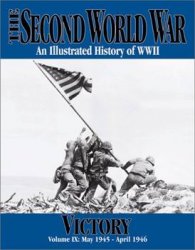The Roman army played an important role in imperial politics and, equally, the demands of domestic politics generated conquest and sustained an ideology of imperial expansion. Just as elite political competition in the republic had driven powerful individuals to seek military glory by expanding the empire, so military success was one important characteristic of a successful emperor. Furthermore, the army was important in installing, maintaining, and overthrowing emperors. The praetorian guard, with its proximity to the princeps at the center of imperial power, was of obvious importance, but ultimately it was the major groupings of frontier legions (especially those based in the Balkan provinces) that proved decisive. It was their repeated interventions in politics at the center that gave rise to some of the structural stresses experienced by the empire in the third century ce (see Campbell 1984, esp. 1-156, 365-414; Peachin, this volume; Potter, this volume).
While a Roman emperor (of the principate, at least) was not primarily a warrior, the themes of emperor as soldier, commander, and conqueror were repeated constantly in art, on coins, in rhetoric, and in historiography. Triumphal arches and columns advertised the imperial virtues associated with military conquest. Coins depict emperors addressing the army and historical reliefs (e. g. the Cancellaria reliefs and the Marcus Aurelius panel reliefs) show them celebrating triumphs (largely restricted to the emperor and his family) and portray ceremonial set-pieces associated with campaigning, such as the emperor’s departure for, and return from, war. Inscriptions record emperors’ victory titles, such as Germanicus (‘‘Victor over the Germans’’), Dacicus, Parthicus, and others, while imperator, the republican salutation of a successful general, became one of the princeps" regular titles (Campbell 1984: 122-33). The various military manifestations of the emperor (as fellow-soldier, military disciplinarian, and successful conqueror - but also lover of peace) were standard themes of imperial panegyric (see Pliny Pan. 12-18, Men. Rh. 2.373-4 [Russell and Wilson 1981: 84-9]). Suetonius typically devotes a thematic section of his imperial biographies to military activities even in the case of unmilitary emperors (compare Cal. 43-8 with Tib. 16-20), and military matters continue to occupy an important place in works of history (such as those of Tacitus and Dio) increasingly dominated by court personalities and intrigue.
The need for an emperor to present himself in the tradition of military commander and conqueror to a domestic audience might lead to expansion that in purely practical terms was of dubious value. Suetonius is scathing about the true value of Claudius’ conquest of Britain, but ascribes it to Claudius’ desire to win a proper triumph (Claud. 17). Trajan was honored for his conquests even though some attributed them to his love of war and a desire to emulate Alexander the Great rather than any rational imperial strategy (Dio 68.7.5, 29.1, 30.1). In contrast, some later writers (Fronto Prin. hist. 11; HA Had. 9) criticized Hadrian for consolidating rather than conquering, despite his impeccable military background (ILS 308; Dio 69.5.2, 9.1-5). The bizarre pseudo-military activities of emperors such as Gaius (see Suet. Cal. 44-6 for his ‘‘invasion’’ of Britain and faked skirmishes in Germany), and Nero (see Dio 63.8-11, 20; Suet. Nero 44) must reflect either the emperors’ own desire to present themselves as military figures (Gaius was the first to be depicted addressing the army - in adlocutio - on coins), or, at the very least, the writers’ perception of, and desire to subvert, the stereotype.




 World History
World History









